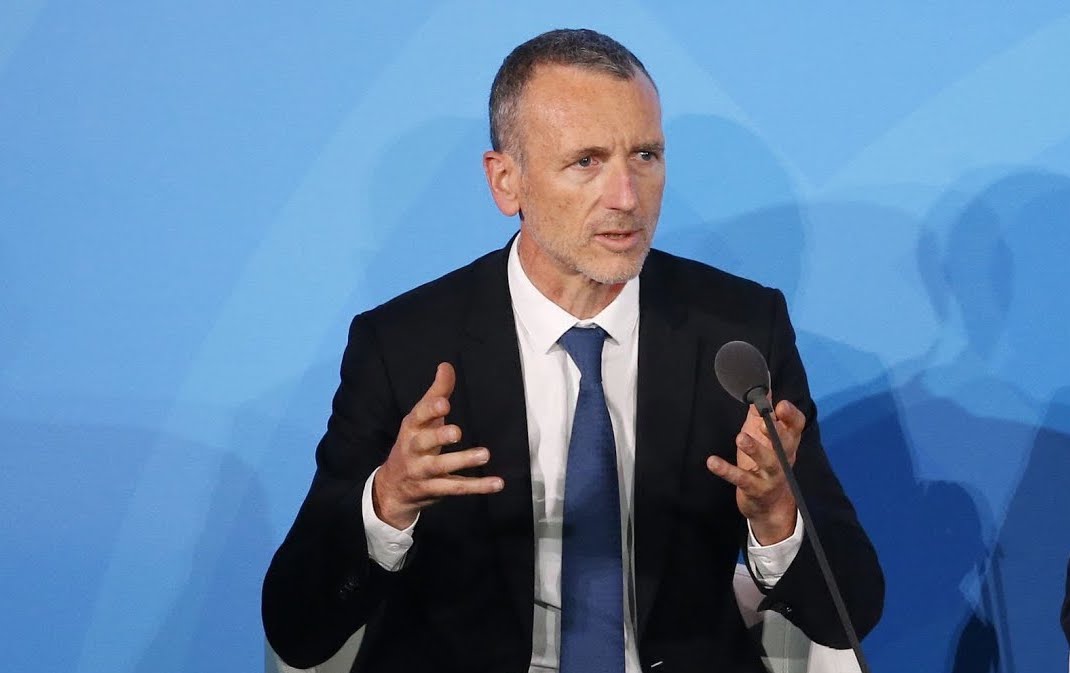The recent events at Danone have raised critical questions about the evolution of capitalism. Activist hedge funds, stating a concern for maximizing shareholder returns and good governance, forced a crisis that led the board to dismiss Emmanuel Faber, their pioneering leader, as both CEO and Chairman.
Some people are questioning whether stakeholder capitalism can balance the demands of shareholders for good returns with the need to consider all of a business’s stakeholders in building a more inclusive, equitable, and regenerative economic system for all. Some people are also asking whether benefit governance, the legal structure that Danone put in place last summer with a 99% shareholder vote, can be an effective legal structure for making companies accountable to balance stakeholders and shareholders.
On one hand, opponents of change, including those who wish to preserve shareholder primacy at all costs, are cheering Faber’s dismissal as a consequence for too much focus on mission and holding it up as Exhibit A for why companies should focus only on maximizing shareholder returns. On the other hand, critics of capitalism see it as evidence that purpose-led business will always be overwhelmed by greedy investors and, therefore, government must heavily regulate every corner of business and investment practice.
Both of these views are cynical and simplistic.
A closer look reveals this moment to be exactly the test we need for stakeholder capitalism. The question is: can companies balance the need for good shareholder returns over the long term with the interests of their workers, the communities in which they do business, and a healthy planet? We believe the answer is yes. But the Danone situation highlights the structural changes – not just the words – we need to ensure that it works, especially stakeholder governance.
Emmanuel Faber is a pioneer. We should all be grateful for his responsible leadership of a huge employer through a pandemic and for his bold support of stakeholder capitalism. His willingness to champion Danone’s new legal structure – an enterprise à mission, akin to the benefit corporation statutes in the U.S. – was bold and will be his legacy. We are disappointed that he was pushed out, and we question the motives of investors who think only about their own short term interests.
But the movement toward stakeholder capitalism isn’t about individual heroes. It’s about systems change. And changing the economic system requires us to change the rules of the game. Our organization, B Lab, has been focused on stakeholder governance for 15 years in order to ensure that companies can maintain their mission and continue to have a positive impact on society, no matter who the CEO or the board or the investors are.
The benefit corp legal form requires companies to balance shareholder and stakeholder interests. No one can credibly argue that investors’ interests were cast aside or took a backseat to Danone’s other stakeholders in this situation. Investors should be heartened that stakeholder governance doesn’t entrench individuals; it entrenches purpose – to create value over the long term for stakeholders and shareholders.
Test case
Therefore, there is a test ahead for Danone’s board to live up to their legal accountability to stakeholders that 99% of its shareholders supported just last year. The board’s new chairman has confirmed Danone’s commitments to its stakeholders as a benefit corporation will remain at its core. We can all help to hold them accountable, especially Danone’s own long term shareholders and its workers and consumers. But if society has to rely on individual heroic CEO’s to save us, we are cooked.
We need to look beyond the governance of individual companies. We have misaligned incentives in the capital markets. Even if companies commit themselves to stakeholder capitalism (not just through the Business Roundtable’s words, but through accountable stakeholder governance, like Danone), investors are still playing by a set of fiduciary duties that simply ignore both the long term financial value and the benefits to society of companies that look out for their stakeholders.
To address that, we need to broaden the fiduciary responsibility of investors beyond profits in favor of real value creation in their underlying investments; investment fiduciaries must be responsible for the impact that their portfolio investments have on society. The rules of the game in the capital markets drive fickle short term behavior that leads to unsustainable outcomes. It’s important to remember that, only 8 months ago, 99% of Danone’s shareholders supported Emmanuel Faber and Danone’s governance shift. Eight months later, they’ve done a 180. That rapid reversal, in and of itself, suggests we need to change the rules for investors, not just in board rooms.
If investors and companies can’t get it right themselves, then the need for systems change will require us to change the rules of the game through public policy. Policy makers on both sides of the aisle in the U.S. and many other markets are coming to the conclusion that the rules of shareholder primacy are undermining sustainable economic growth, hurting workers, and creating a climate emergency. They are beginning to consider new rules that would align the interests of investment fiduciaries and corporate boards so that we can create economic growth while looking out for stakeholders.
Danone’s stakeholder governance structure presents an opportunity for Danone and its investors to get it right, to live up to their commitments. And it presents an opportunity for all of us who are watching to hold them accountable and to support other companies and investors to follow their lead. Let’s keep our eyes on the prize.
Andrew Kassoy is cofounder and CEO of B Lab.











